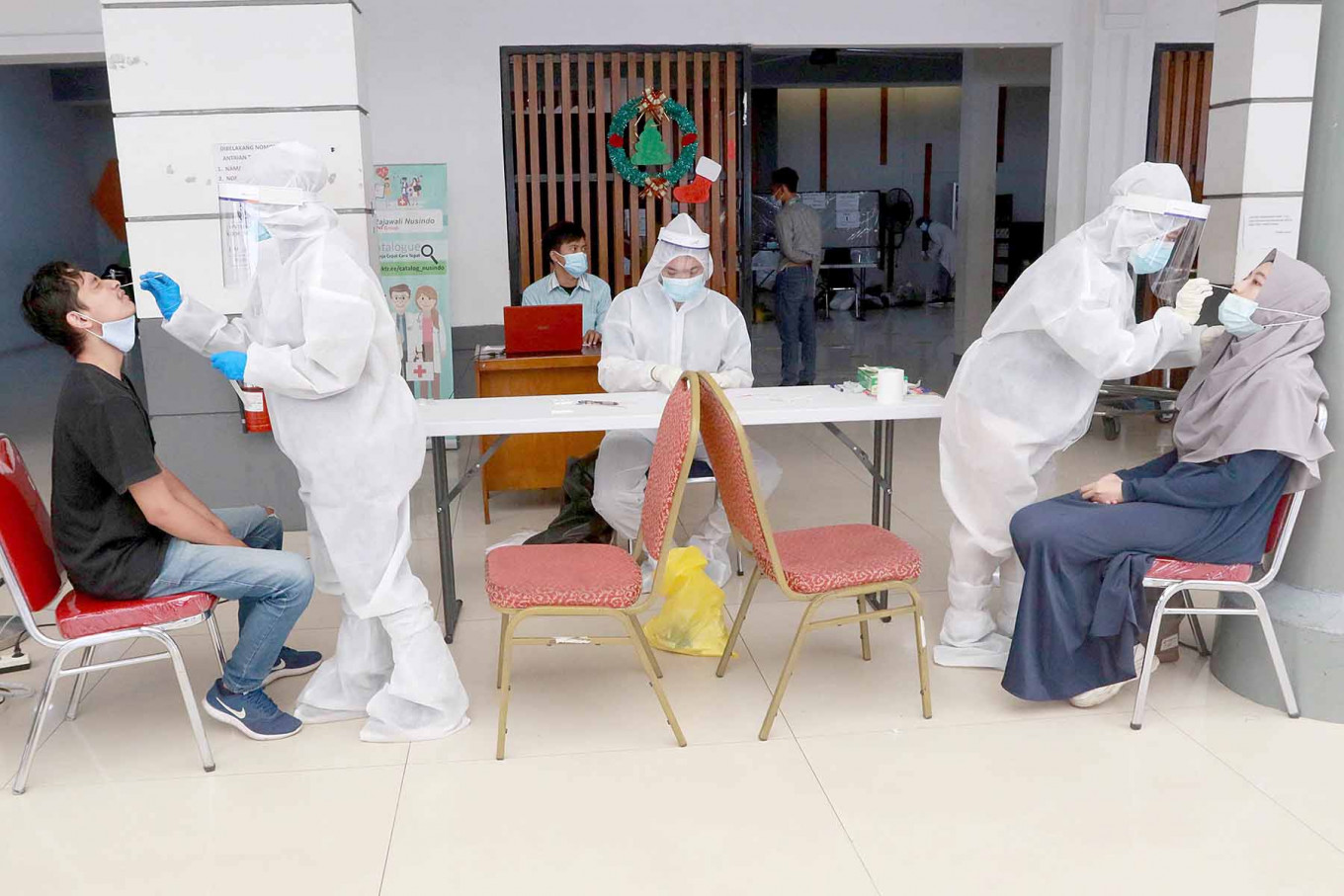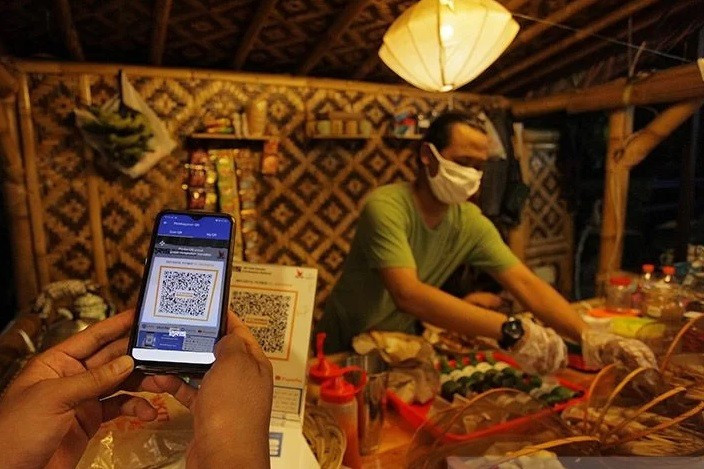Popular Reads
Top Results
Can't find what you're looking for?
View all search resultsPopular Reads
Top Results
Can't find what you're looking for?
View all search resultsPandemic policy flip-flop
For the policy to work, the tests should be affordable, if not completely free of charge.
Change text size
Gift Premium Articles
to Anyone
 Healthy travel: Medical workers take swab samples for rapid antigen tests from passengers departing from the Pasar Senen railway station in Central Jakarta on Monday. State railway operator PT Kereta Api is requiring passengers to have negative results from antigen or polymerase chain reaction (PCR) tests to travel between Tuesday and Jan. 8, 2021. (JP/Dhoni Setiawan)
Healthy travel: Medical workers take swab samples for rapid antigen tests from passengers departing from the Pasar Senen railway station in Central Jakarta on Monday. State railway operator PT Kereta Api is requiring passengers to have negative results from antigen or polymerase chain reaction (PCR) tests to travel between Tuesday and Jan. 8, 2021. (JP/Dhoni Setiawan)
The government recently scrapped its controversial policy mandating travelers to take a polymerase chain reaction (PCR) test to prevent another deadly wave of coronavirus infection. The about-face followed public criticism that the policy was neither fair nor effective, citing the exorbitant price of taking the test.
It is relieving that the government is willing to listen to the people, but the fact that it was again forced to rescind its own policy is far from assuring, especially when we are now dealing with the worst pandemic in a century.
There is nothing inherently wrong about the policy in question — it is only rational to require travelers to take a coronavirus test to curb transmission. But requiring the public to pay for prohibitively expensive PCR tests for domestic travel is just a bad policy.
For the policy to work, the tests should be affordable, if not completely free of charge. The PCR test is the golden standard for coronavirus testing, but the cost of taking the test is still way too expensive in Indonesia, with prices ranging from Rp 500,000 (about US$35) to more than Rp 1 million per test before the government decided to put a price cap of Rp 275,000 in Java and Bali and Rp 300,000 outside the two islands.
Even then, the prices are still ridiculously high for many.
The government initially mandated PCR tests for airline passengers only, but it then announced that it was also planning to have the same policy implemented for other modes of transportation. The plan drew criticism from both the public and experts alike.
The policy will certainly limit public mobility at a time when the pandemic is relatively under control, a situation that experts say warrants a loosening of certain restrictions. Public objection to the policy is therefore understandable since there is a cheaper alternative to the PCR test — the antigen test, now costing below Rp 100,000 — which epidemiologists say is sufficient at least for screening purposes.
Moreover, as part of precautionary measures, passengers are required to show proof of vaccination through the official contact tracing app PeduliLindungi.
Coordinating Human Development and Culture Minister Muhadjir Effendy said that even airline passengers could now take an antigen test to board domestic flights. The minister, however, refused to explain the rationale behind the change of policy, only saying the U-turn was based on a proposal tabled by Home Minister Tito Karnavian.
The government could have been more transparent in outlining the policy to avoid speculation that will only fuel public distrust. The public is wondering why the price of a PCR test could go as low as Rp 275,000 without government subsidy after months of having to pay at least double that to get the same service. This has led to accusations that certain officials have engaged in pandemic profiteering.
The incident must serve as a reminder for the government to consider all things when devising pandemic policies. More importantly, it must ensure that the policies are insulated from short-term business interests that only benefit the few.
Only then can we have sound, not flip-flopping, pandemic policies.









